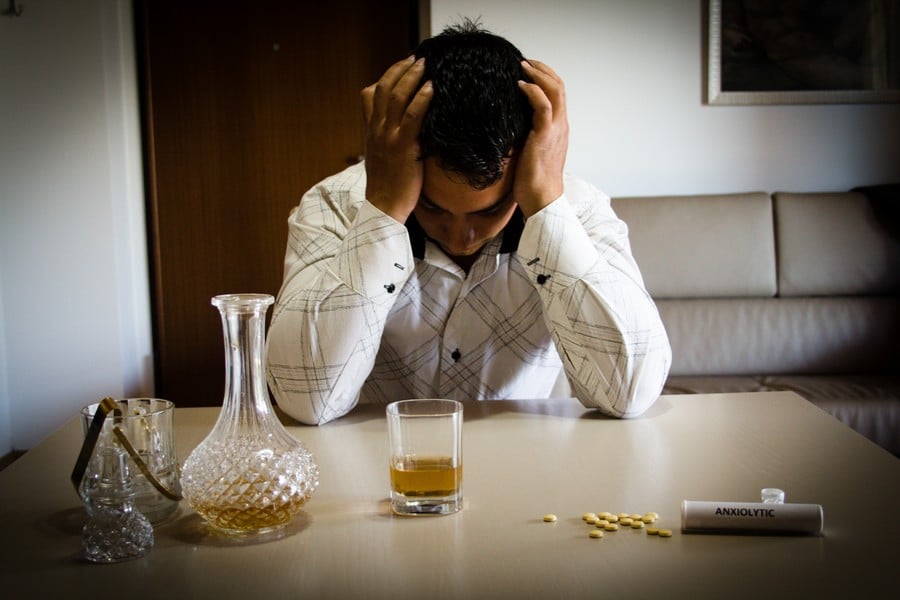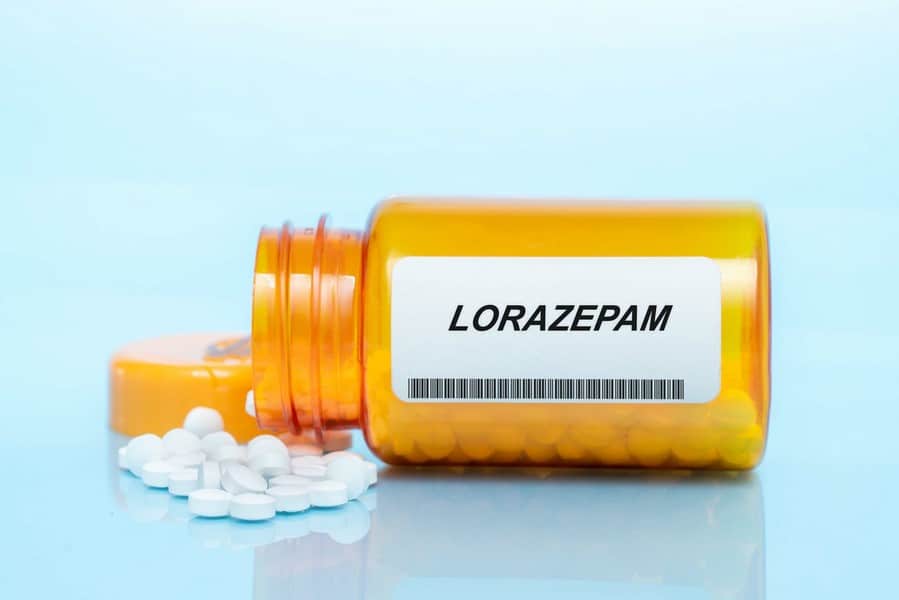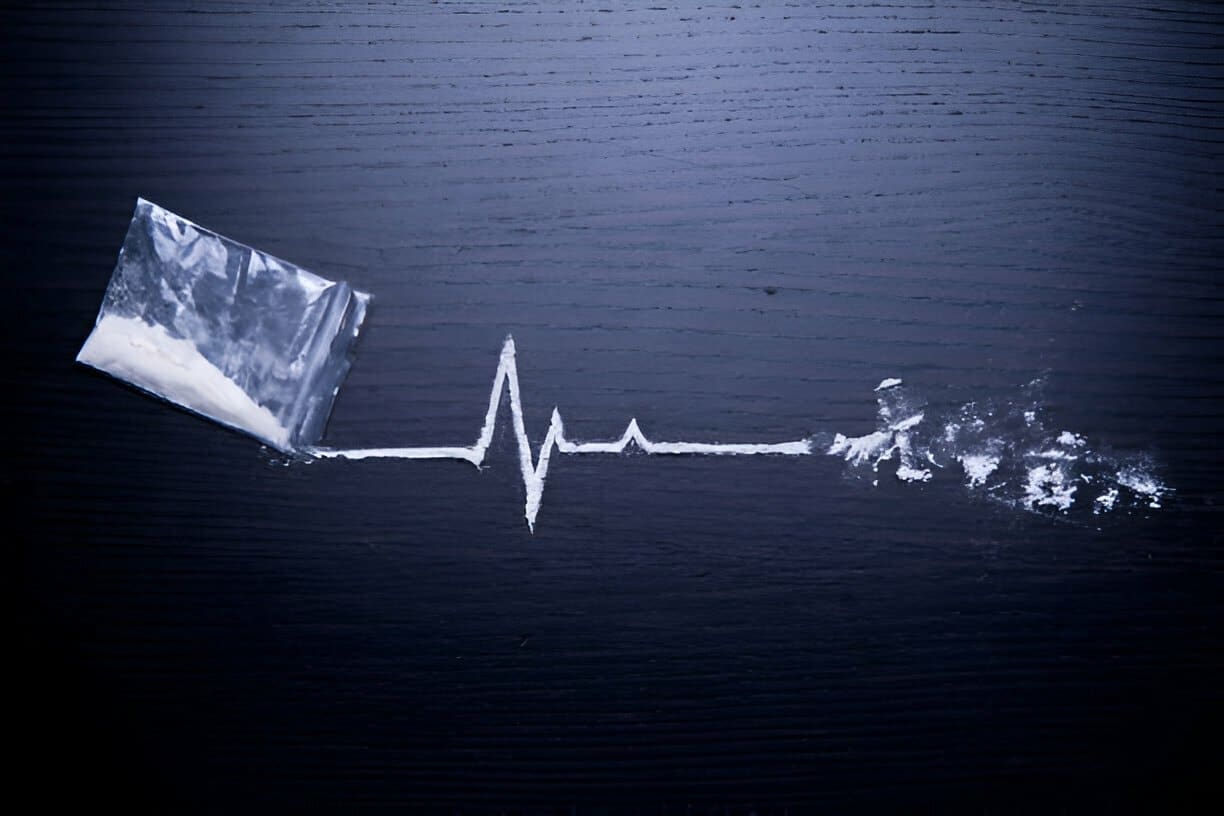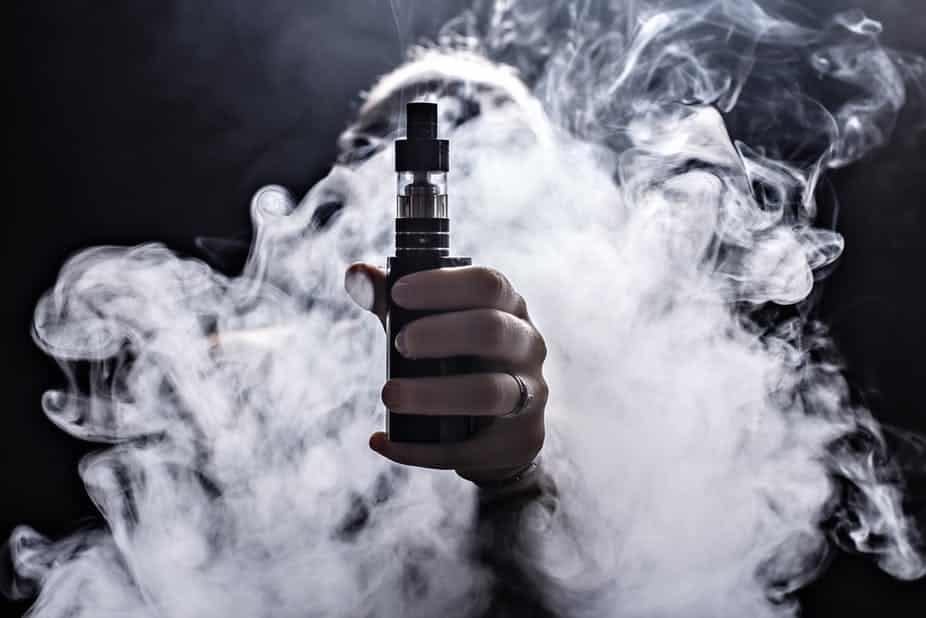Ativan (generic name: Lorazepam) belongs to the benzodiazepine family of drugs and is used to treat seizures, panic attacks, anxiety, and alcohol withdrawal symptoms. In those with panic disorders and anxiety, lorazepam modifies imbalanced substances in the brain. It’s a medication with a medium-term effect. Due to the intense action of the tablets, it is only intended to be used for a short amount of time to avoid the risk of addiction.

Ativan is available as a strong, colourless liquid or a tablet that dissolves quickly. When recommended by a doctor, it is given orally or intravenously. The effects of the medicine take about two hours to experience and up to 20 hours to exit your system. If you’re pregnant or have a Valium allergy, you shouldn’t take Ativan. It might cause birth abnormalities or withdrawal in neonates.
Common side effects of Ativan include vomiting, reddening of the skin around the ears, muscle cramps, loss of pleasure, hallucinations, excitations, dry mouth, drooling, discouragement, dark urine, and difficulties speaking and swallowing.
If your loved one needs support dealing with an Alcohol Addiction, contact us today on 0800 999 1083. We can help you by recommending treatment options.
Lorazepam (Ativan) is a class-C prohibited substance available only by prescription in the United Kingdom.
Lorazepam (Ativan) is commonly taken as a tablet, although it can also be administered as an intravenous or intramuscular injection, a sublingual patch, or a transdermal patch.
Ativan belongs to the benzodiazepine family of drugs. By definition, all benzodiazepines are sedatives. They act by altering GABA, a brain chemical.
Ativan promotes muscle relaxation, stress reduction, drowsiness, and other effects via altering GABA and its receptor. Ativan increases GABA availability in the brain. Simultaneously, it lowers the GABA receptor’s ability to respond to the neurotransmitter. The combined effect of both forces causes the drug’s sedative effects.
Because of its sedative properties, this medication is a practical choice for treating anxiety and panic attacks. It can also be used to treat seizures to some extent. As a result, it has previously been used to aid in managing alcohol withdrawal symptoms. However, doctors are starting to realise that Ativan and other benzodiazepines aren’t always the best option for alcohol withdrawal.
Addiction is a psychological condition in which a person continues to participate compulsively in behaviour while being aware of the negative consequences of that behaviour. Addiction is separate from but closely connected to dependence. In the case of lorazepam addiction, the behaviour in question is lorazepam consumption (usually, at least initially, for the pleasurable effects it produces). Both disorders suggest that an affected person will find it difficult, if not impossible, to stop taking it without assistance.
Like many other drugs, Ativan has the potential to induce physical dependence. The physical dependence on Ativan has two distinct characteristics. First, the body builds a tolerance to the substance, requiring higher doses to achieve the desired medicinal or recreational “high.” Unfortunately, as tolerance and dosage rise, the risk of overdosing rises as well. Secondly, people who abuse Ativan generally experience withdrawal symptoms when they stop taking or drop their dosage drastically because of their heightened tolerance. Addiction can be distinguished from physical dependence. Although physical dependence is a component of addiction, not everyone who is physically dependent becomes addicted. When a person becomes addicted to Ativan, they will exhibit various mental and behavioural symptoms. For example, buying and using Ativan can take up a lot of time, energy, and resources, which can negatively influence job, family, school, or personal obligations.
Anyone who takes lorazepam for an extended time is in danger of developing dependency, a condition in which the affected individual’s system adjusts to the presence of lorazepam and becomes unable to operate normally without it.

Someone dependent on lorazepam will experience withdrawal symptoms, which are the physical and mental manifestations of the abnormal brain and central nervous system functioning caused by the lack of lorazepam.
Brain chemistry: Ativan targets the central nervous system, namely the brain’s reward centre. If you are deficient in specific brain chemicals essential to produce pleasurable experiences, you compensate by taking Ativan, which will more likely lead to addiction.
Environmental factors: The environment has long been recognised as a risk factor for drug addiction. It could be because you grew up in a family where your parents or guardians used benzodiazepines to cope with stress and became addicted, or because your group of friends at school encouraged you to try drugs.
Psychological factors: If you have co-occurring disorders or a dual diagnosis, you may be tempted to self-medicate with Ativan or other benzos. The trouble is that misusing Ativan does not help you get better. Instead, it exacerbates your symptoms and has a negative impact on your general health.
Genetics: According to studies, people who have parents who are drug users are twice as likely to take drugs and become addicted themselves.
Ativan is a lorazepam-based anticonvulsant and anti-anxiety medication. The active components include magnesium stearate, monohydrate, polacriline potassium, and microcrystalline cellulose. Combining these components creates a powerful treatment for relieving anxiety associated with depressive symptoms in the short term.
After taking Ativan for a long time, most people develop physical dependence. You’ll encounter withdrawal symptoms if you try to quit. After dependency, addiction is the next step. You’ll have no control over your drug abuse at this point, disregarding family drug responsibilities, obsessing about your next dose, and requiring the assistance of addiction specialists and medical professionals to quit.
Ativan is addictive because it causes the brain to release GABA and reduces the function of other neuronal activities. Ativan affects a specific GABA receptor that is abundant throughout the brain. A modest dose of Ativan has the same effect as larger doses of Xanax and other benzodiazepines. The effects are short-lived, reinforcing the need to continue consuming after the drug has left your system.
Professionals can recognise specific danger symptoms associated with Ativan usage. You can also learn to recognise them. It’s important to note that anyone who exhibits any warning signals indicated in the following two sections is almost certainly misusing Ativan. If they haven’t already succumbed to addiction, that person may be on the verge of it.
Abuse and dependence on Ativan significantly impact a person’s behaviour. As a result, many visible signs of abuse are behavioural in nature. If you suspect abuse or dependency, look for the following warning signs:
Even if you only show one or two of these warning signs, you could be abusing Ativan. The presence of the majority of them would imply a possible addiction.
The severity of Ativan withdrawal symptoms varies from mild to severe. Anxiety and fear are among the first symptoms to appear. Physical symptoms such as headaches, increased heart rate and respiration, perspiration, nausea, and vomiting accompany the psychological symptoms.
The severity of the symptoms gradually rises till they peak between the 5th and 10th day. After that, they start to fade away. Prolonged withdrawal might cause more significant symptoms like tremors, memory loss, hallucinations, and depression in some people. Seizures, coma, and death are all risks in the most severe cases of prolonged withdrawal.
Many of Ativan’s intended effects (such as its sedative, anti-anxiety, and muscle relaxant qualities) can be challenging to manage when they are unexpected. Abuse of Ativan might have visible adverse effects. As a result, it’s essential to understand the drug’s side effects:
Combining Ativan with other substances like alcohol, opioids, hydrocodone, marijuana, or diazepam increases your risk of drug overdose and life-threatening adverse effects.
Also, wait until the medications have completely left your system before working heavy machinery that requires focus.
Long-term Ativan abuse produces additional warning signs that you can learn to spot. For example, gradually increasing the dose of a drug indicates that a person has built a tolerance to it. Tolerance requires ever-higher doses to achieve the same effect.
Other symptoms of long-term, chronic misuse include:
Even though Ativan is safe when taken as prescribed by a doctor, it is possible to overdose on it by taking too much in too little time. As a central nervous system depressant, Ativan reduces both brain activity and nervous system reaction. Overdosing can cause the central nervous system to slow to the point of unconsciousness or death.
Recognising the signs and symptoms of an Ativan overdose could save a life. Among the signs and symptoms are:
Don’t go through the process of recovery alone. Treatment providers can answer your questions. Get in touch with one today.
Call 0800 999 1083 today!
According to doctors, the symptoms of an Ativan overdose can be reversed in two ways. The first step is to use activated charcoal to absorb any remaining Ativan in the system. When poison has been swallowed, this is a common remedy that is simple to use orally, taking activated charcoal.
A medication called flumazenil is the second option. It functions as an antidote to the effects of Ativan by acting as a benzodiazepine receptor antagonist. In many circumstances, this medication can reverse the effects of an Ativan overdose.
Because Ativan is used to treat a variety of mental health concerns, it is more likely than other medications to be included in dual diagnosis scenarios (when mental disorders co-occur with substance abuse disorders). Dual diagnosis frequently makes addiction treatment much more complex, involving the need for specialised care.
Many people who have significant mental health problems are also substance addicts, with some of them self-medicating with Ativan pills. When you use Ativan with a co-occurring condition, you risk suicidal ideation, emotional apathy, and worsened depressive symptoms. Long-term use alters brain cell structure, making it challenging to overcome withdrawal cravings associated with Ativan addiction.
Ativan is a popular drug among teenagers because of its inexpensive cost and widespread availability. If you suspect a young person close to you is abusing or addicted to Ativan, speak with an addiction professional.

Addiction to Ativan is a complicated condition. There is no such thing as a “correct” treatment. On the other hand, the most effective treatment will be broad enough to address all of your addiction’s physical, social, and psychological elements. The psychological therapies Cognitive Behavioural Therapy (CBT) and Motivational Interviewing (MI) are used to treat Ativan addiction. Depending on your specific needs, these may entail engaging with a licenced counsellor on an inpatient or outpatient basis.
Depression and other psychological disorders that co-occur with Ativan addiction can be effectively treated with Cognitive Behavioural Therapy. Contingency Management, on the other hand, has demonstrated value. You will be given a voucher when you successfully verify that you are ‘clean’ following clean drug tests. Vouchers can be redeemed for valuable items and services. According to research, if you have a combined diagnosis of generalised anxiety disorder and severe depressive illness, alongside the Ativan addiction, Contingency Management can help.
Inpatient rehab is the best alternative if you’re addicted to Ativan or other benzodiazepine drugs. This is because such medicines can cause severe and sometimes life-threatening withdrawal symptoms, such as seizures, psychosis, and coma. Medical detox is generally included in an inpatient recovery programme to help you withdraw safely. It also provides a variety of therapies and activities to help you gain the skills you’ll need to get back on your feet.
If your Ativan addiction isn’t severe or long-term, outpatient treatment may be better. This can be used as an extension of inpatient treatment or a stand-alone treatment. You will be able to live at home while receiving addiction treatment instead of inpatient rehab. Individual and group treatment sessions are generally combined in this strategy.
Other supplementary resources provided at drug rehab programmes include various options. The additional services offered are frequently determined by funding and the centre in question. Wellness is the focus of a vast subset of supplementary services. The following are some examples of ancillary wellness programmes provided by drug rehabs:
Even someone in recovery who has a loving family may require additional assistance from specialist centres that provide housing, free or low-cost legal services, transportation, public benefits, daycare, or job placement.
Although avoiding relapse is critical to overcoming Ativan addiction, it’s important to remember that relapsing does not indicate you’ve failed in your recovery and will eventually resume your past drug use. Combating relapse is a lifelong endeavour, and therapy, such as that received in rehab can provide you with tools and defence mechanisms. Meanwhile, joining self-help programs and receiving continuing counselling can be quite beneficial. Consult an addiction specialist about relapse prevention strategies.

BACP accredited psychotherapist with 16 years experience working in mental health specialising in psychodynamic person-centred therapies treating those with a range of mental health disorders including anxiety, depression, OCD and Addiction.

Fill in your details and we’ll send you a message via SMS.

No matter where you live, there are drug and alcohol rehab options for you to discover. Treatment providers are waiting to answer your questions. Get started today.

Ever felt that gnawing ache or burning sensation in your gut after a night of drinks? You’re not alone. Stomach pain after drinking is a common complaint, and there are a few reasons why it might happen. Let’s delve into the science behind the discomfort and explore ways to soothe your stomach. The Irritating Truth: … Continued

Cocaine, a stimulant known for its short-lived burst of energy and euphoria, hides a dark side. Behind the initial high lies a dangerous potential for overdose, with severe health consequences and even death. This article delves into the world of cocaine overdose, equipping you with the knowledge to recognize the signs, understand the dangers, and … Continued

Adult smoking habits in the UK refer to how often and in what ways people aged 18 and above use tobacco. This includes everything from smoking cigarettes every day to occasionally lighting up, as well as using other tobacco products. Understanding these habits is important for several reasons: Public Health: Smoking causes many diseases that … Continued

Addiction in the UK is a complex issue that is connected to various aspects of society such as healthcare and law enforcement. It affects people from all backgrounds and has negative impacts on families, communities, and the entire nation. Understanding addiction involves not only looking at the uncontrollable use of substances and repetitive behaviors but … Continued

Don’t go through the process of recovery alone. Treatment providers can answer your questions. Get in touch with one today.
Call 0800 999 1083 today!








